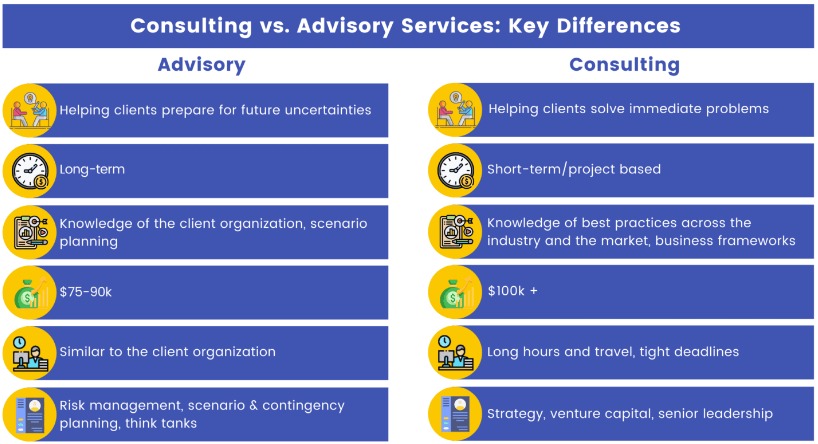UDHYAMANTRA BHARAT LIMITED

- Home
- About Us
- Business Landscape
- All Menus
- Consulting and Advisory
- Entrepreneurship Development and Business Process Management
- Project Development and Management Services
- Manpower supply; Project Management Unit
- IT / IT enabled services and systems
- Brand Building and Marketing communications
- Financial Management Services
- Proposal; DPR preparations
- All Menus
- Research & Insites Hub
- Contact Us
Consulting & Advisory
Consulting
Consulting is the practice of recommending expert solutions to other professionals working in business, financial, or technical fields. It’s shorter-term in nature, with consultants delivering solutions to defined problems the business is currently facing.
Advisory
Advisory is the practice of offering information and advice to other professionals to manage future risks, often based on data modeling and the application of lived experience. It’s a long-term relationship that helps a business to proactively prepare for change and uncertainty.
Consultants
Help organizations solve problems that are preventing them from delivering on their strategy. Because of this, there is more certainty around the nature of the problem.
Focus on the client’s external environment, market forces or what the client’s competitors are up to. The core proposition of a consultant is to bring expertise they’ve gained from working across many clients in the same field or even different industries altogether.
Take a reactive approach. They benchmark clients’ performance against market or competitor information and propose the changes required to keep the business competitive in that environment.
Advisors
Sit alongside business leaders to facilitate their thinking. They help them get clear on the unknowns their businesses may face due to changes in regulation, technology, and forces outside their control and support them to scenario-plan based on their knowledge of the company’s strengths and weaknesses. Because of the focus on future unknowns, there is less certainty in the nature of the problem.
Focus more on a company’s internal environment. This is because the external environment is uncertain or ill-defined
Take a proactive approach, identifying issues that may affect their clients in the future and proposing ways to prepare for them. While consultants are seen as problem-solvers, advisors are more like problem-definers.
